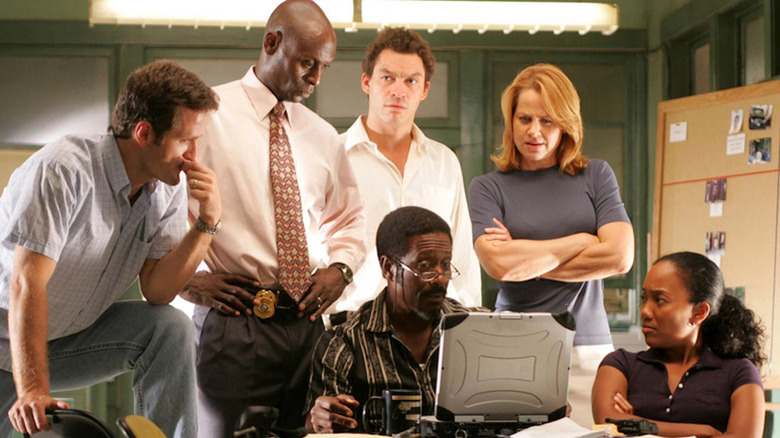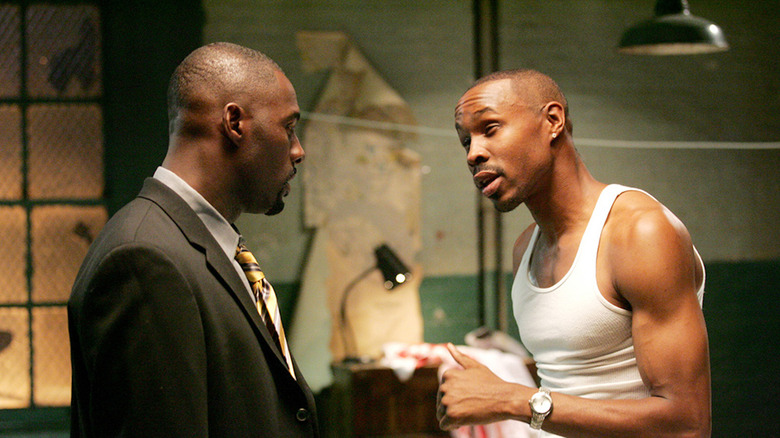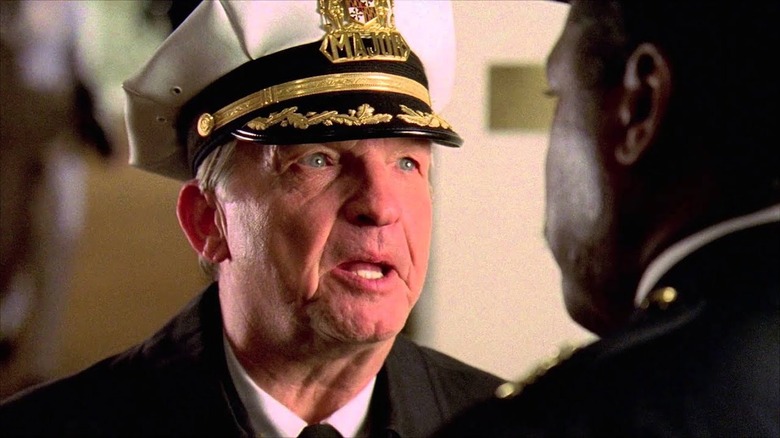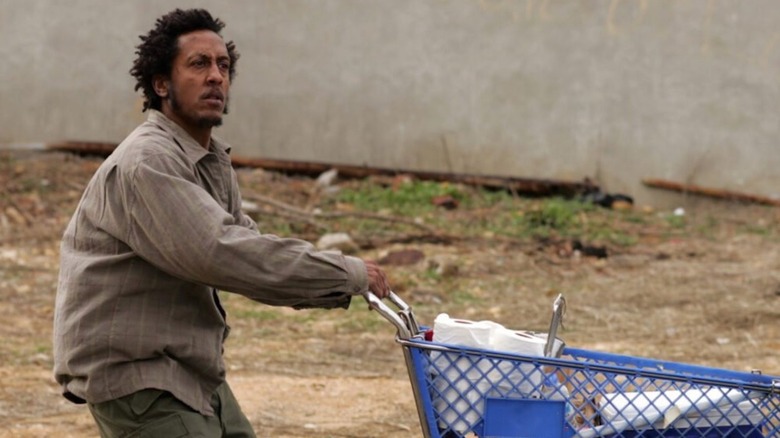Why Creator David Simon Rejects The Notion That The Wire Is 'Conservative Art'
If you are attempting to make a nuanced argument about prison and law enforcement reform online in 2022, you need to be ready for people to engage emotionally and, oftentimes, in bad faith. As a society, we need to be ready to ignore these inflammatory knuckleheads and move forward with the extraordinarily difficult task of overhauling these systems so that they truly protect and serve their citizenry.
Or you can be David Simon, who is evidently inexhaustible when it comes to combating folks who mistake dopey catchphrases for meaningful action.
There are few fiercer opponents of the war on drugs in America then Simon. From his days as a Baltimore crime reporter to his ongoing work as a creator of high-quality dramatic television like "The Wire" and "Treme," he has demonstrated time and again, in tragically human detail, how elected officials and police continue to fail their communities via a wrongheaded campaign to rid the streets of narcotics. It is a bureaucratic, ludicrously punitive nightmare that prioritizes arrest numbers and sends young people to jail for an unconscionably long time via minor drug convictions. If his opposition to the carceral state of play in America doesn't come screaming through your television set while you're watching "The Wire," you can watch him speak eloquently on the topic in Eugene Jarecki's superb documentary "The House I Live In."
Or you can accuse him on Twitter of producing "conservative" series, and reap a finely-threaded whirlwind.
You come at David Simon, you best not miss
This is what podcaster Rowan Kaiser — a title that, today, is exactly as commonplace and meaningless as "blogger" was in the mid-2000s — did earlier this week. Here's the tweet in its entirety: "'The Wire' remains the best piece of conservative art ever made. David Simon has no idea that's true though."
Simon, who monitors his mentions with Lester Freamon-like tenacity, is no stranger to this kind of flip criticism. If you follow him on Twitter, you're well-aware that he'll spend the better part of an afternoon crafting creatively profane ripostes to extremist jerk-offs and low-follower trolls alike. He does not discriminate. So of course he went after Kaiser.
Though Simon kicked off his lengthy response with one of his favorite pejoratives ("s**tbird"), he quickly turned serious. "Mass incarceration and the drug war have filled too many American prisons and have done so as an overly of systemic racism and class warfare," he wrote. "That has to stop and I've been arguing and writing about it for 25 years."
It does his level-headed fulmination something of a disservice to single out just one chunk (it is, like "The Wire," a densely layered statement), but let's check out two salient excerpts.
Two very awful things can be true at once
After explaining how the ability to investigate violent crimes like murder and violent has been devalued by promotion-hungry cops hellbent on making their "drug warring" arrest stats, Simon refuted the notion that people in poor, urban neighborhoods favor the wholesale "defunding" of police. He wrote:
"If you talk to the people who live, or labor or try to raise families in the most vulnerable places in my city, if you f—ing listen, you learn that no, they don't want to be harassed and abused and brutalized by some army of occupation fighting an endless siege in the name of a substance prohibition that has worn down not only civil liberties but the quality of law enforcement. But they very much want the police to not disappear, but to come down to the corner and lock up the fellow who keeps shooting people. They want that guy gone."
At which point he turned to the issue of prison abolition. Simon is obviously pro-reform, and has argued passionately for the release of non-violent offenders serving unconscionably lengthy terms. But getting rid of prisons altogether? He views this as highly impractical. Simon continued:
"[I]f you defund the BPD and abolish prison as a concept in Maryland, someone is still going to go down TONIGHT to the 1200 block of N. Durham Street tonight, or some similar local and shoot another human being dead. And in most cases, it will not be the first time that shooter used his gun, or the last. This is our present. So what is the name of that newfangled, unarmed agency, without the power of arrest, that we are going to send to interpose between that shooter and the other human beings who live in our city, and if he is subject to some manner of detention, what is the name of brand new building that isn't a prison where we will deliver said shooter?"
There are no simple solutions in a country as mightily messed up as America
It's easy to take to Twitter and vent that we should burn the entire system down to the ground and rebuild with an eye toward meaningful, unprejudiced social and criminal justice. This is not only wholly unrealistic, it's dangerous. It would, as Simon notes, leave vulnerable communities without any kind of police presence until a new, more civic-minded law enforcement entity is trained up and thrust onto the streets.
To be fair, Simon doesn't offer solutions over five seasons of "The Wire," but he does use his knowledge and expertise to pinpoint certain areas of mismanagement and outright corruption, from which we can postulate potentially workable notions of reform. It starts with voting for responsible, progressive politicians who can maintain the support of their constituents as they target bad actors in city governments and police forces, while finding a middle ground with powerful (and typically hyper-conservative) police unions.
If this also sounds utopian, well, that's how bad things have gotten. Too many Americans are simply too aloof or disinterested to understand the outrage of people who take to the streets every time a person with brown skin gets gunned down by a poorly trained, probably racist cop. Most people view policing through the idealistic prism of "Law & Order." They sympathize with the main characters, seen as true pillars of equal justice, and sneer at the ever-rotating cast of violent criminals. Perhaps if they understood the plight of people who were born into poverty, flung into overcrowded schools, and made to feel everyday like an occupied population in their own country, they'd have their faith in law enforcement shaken to its core.
Perhaps if they watched "The Wire," they'd give a damn.



